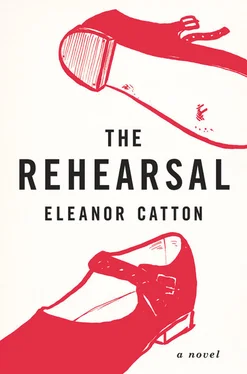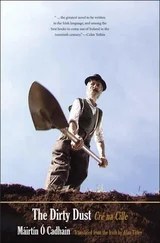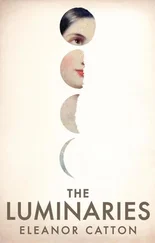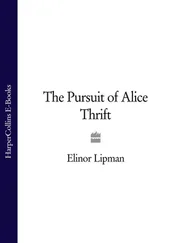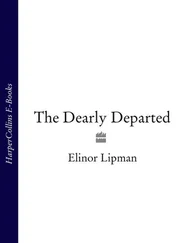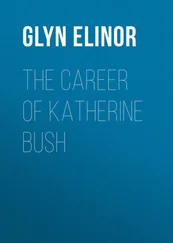“Maybe you’re being too hard on yourself,” the Head of Acting said. “Putting too much of an expectation on yourself that you actually have to care. Maybe you don’t have to care. Maybe you can not care and still be a great teacher.”
“Maybe,” the Head of Movement said.
“Who is the student who captures you?” the Head of Acting said. “The younger version of you.”
The Head of Movement hesitated, squinting up at the light fitting above the Head of Acting’s head.
“I’d rather not say,” he said at last, a little shyly, as if the boy was a crush that he held still too close to his heart.
“All right,” the Head of Acting said. “But if you let me, I bet I could guess.”
April
“My dad has this theory,” Stanley said. “He reckons schools should take out insurance policies on the students they think are most likely to die.”
There was a pause, then all six of them put down their forks and turned to look at Stanley properly.
“What?” they said.
“Because there’s always one kid who dies,” Stanley said. “In any high school, right? During your time at high school, any school, you can always remember one kid who died.”
His smile was faltering now. He had intended the remark to be flippant and amusing and slightly shocking, but his classmates were looking nauseated and confused. He tried to let a surprised and disappointed look flit across his face, as if to communicate that his audience was not as debonair and outrageous as he had hoped, that the six of them had let him down somehow by this pinched and prudish outlook, by their backward and unfashionable scope that left no room for wit or scandal. He tried to make his eyebrows peak in the center and his smile turn down slightly, a worldly look that was contemptuous and cheerful and uncaring. He tried not to care.
“That’s retarded,” one of the girls said.
Stanley smiled wider. He could not rightly retreat now. He was committed to voicing, and thus partly owning, a point of view that wasn’t his own. He felt trapped, and so tried to redeem himself by becoming jolly and charming, like his father could be, and amplifying his own part, his own sponsorship of the idea, until it seemed as if the idea really was his own.
“You can take out an insurance policy,” he said, “for something like two hundred a year. Insurance policies on kids are really, really low. Making money is all about seeing something’s going to happen before it happens, right? So if you can get in there and make something good of it—if you can pick the kid who’s most likely to die—”
He spread his hands and shrugged, as if the logic were self-evident.
“And you reckon the money should go to whoever takes out the policy,” a boy said. “Like, it should go to the school as a reward for being clever enough to spot the kid that was likely to die?”
“What does it mean, ‘most likely to die?’ ” snapped the girl. “That’s retarded. How can you tell if a person’s likely to die?”
Stanley was feeling hot now. He started to feel resentful, not at his father, whom he was instinctively moving to protect, but at this nauseated audience, who were scowling at him across the mirror-glaze of the linoleum tabletop as if he had mentioned something truly dreadful. He forgot that he himself had met his father’s insurance idea with something a little like nausea; he forgot that his father’s deliberate provocations often gave him a tight feeling in his chest and a helpless clenching anger that lingered for days and weeks afterward. He glared back at the six of them and said, “Who’s to say something good can’t come out of a death? Who’s to say it’s wrong to make something good out of something terrible like a death? To spot it before it happens, and pounce?”
He was imperfectly paraphrasing, and the words were lopsided and unlikely in his mouth.
“Something good of it—like making a million dollars off some kid coming off his skateboard on the way home from school?”
“Maybe,” Stanley said. “Maybe, yeah.”
“That’s the stupidest idea I’ve ever heard of,” one of them said. “Life insurance is all about having a backup in case the person you depend on dies. Like if my dad died, my mum would be screwed because she needs his salary to survive, to pay the mortgage and the bills and all that. So life insurance would pay out if he died, just so she wouldn’t be screwed for a few years until she found someone else. Why would they let you take out life insurance on a kid? It doesn’t even make sense. They’d know you were up to something.”
“I’m just talking about the possibility, though,” Stanley said, slipping into first-person ownership after all. “I mean, the idea’s possible. Something to think about. If you could pull it off.”
All in an instant he remembered a scene from two restaurants ago, La Vista, the two of them silhouetted against a wall of frosted glass and ivy and an artful water fountain that dribbled and never ran dry. His father wiped his mouth on a bunched handful of linen and said, “Want to hear the worst dirty joke I have ever come across in my entire life? I promise you won’t have heard it.”
The restaurant was quiet. The couple opposite were chewing and looking out the window. Stanley dabbed at his mouth. He said, “Yeah.”
“I’m warning you. It’s pretty bad. Shall I tell it?”
“Yeah.”
“All right. What do you get if you cover a six-year-old kid with peanut butter?”
“I don’t know,” Stanley said.
“An erection.”
There had been a long pause, Stanley’s father grinning with his eyebrows up, unmoving, like a clown. The woman opposite had looked across at Stanley casually, meeting his gaze and then lazily drawing her eyes away and returning to the silent dissection of her meal. He wasn’t sure if she had heard. He slid his gaze back to his father, his grinning expectant father, and switched on a smile. His own smile felt horribly false, as if the corners of his mouth were clothes-pegged or fish-hooked, and for a second they were both silent, both of them grinning, both of them still. Finally Stanley nodded, and his father said, “It’s pretty out there. Right?”
“Yeah.”
“That the worst one you’ve ever heard?” His father’s head was tilted at a jaunty angle, and he was rocking merrily in his chair.
“Probably,” Stanley said. “Probably the worst.”
The memory came unbidden into Stanley’s mind and he scowled more deeply now, feeling freshly betrayed. His audience was scowling back at him across the mirrored depth of the tabletop which showed them waxy and foreshortened.
“Nobody would ever let you profit from the death of some kid,” one of them said. “It just wouldn’t happen. Nobody would allow it to happen.”
Stanley shrugged his shoulders and looked away, out over the other tables in the cafeteria, as if the conversation had finished and he didn’t care. “You’re taking it the wrong way,” he said, without looking at any of them. He scratched his cheek carelessly, his eyes roving around the room and his mouth bunched and faintly sneering in the defiant pout of a child. He said, “You’re taking it too literally. It was just meant to be a joke.”
July
“What is a taboo?” the Head of Acting asked, his voice ringing out in the vast room. The group was sitting cross-legged in a circle, clutching their cold white-dusted toes, their faces grayed and ghostly in the diffused light.
Somebody said, “A taboo is something you want but you can’t have.”
“A taboo is something that’s forbidden because it’s disgusting.”
“Or because it’s sacred.”
“A taboo is something we’re not allowed to talk about.”
Читать дальше
